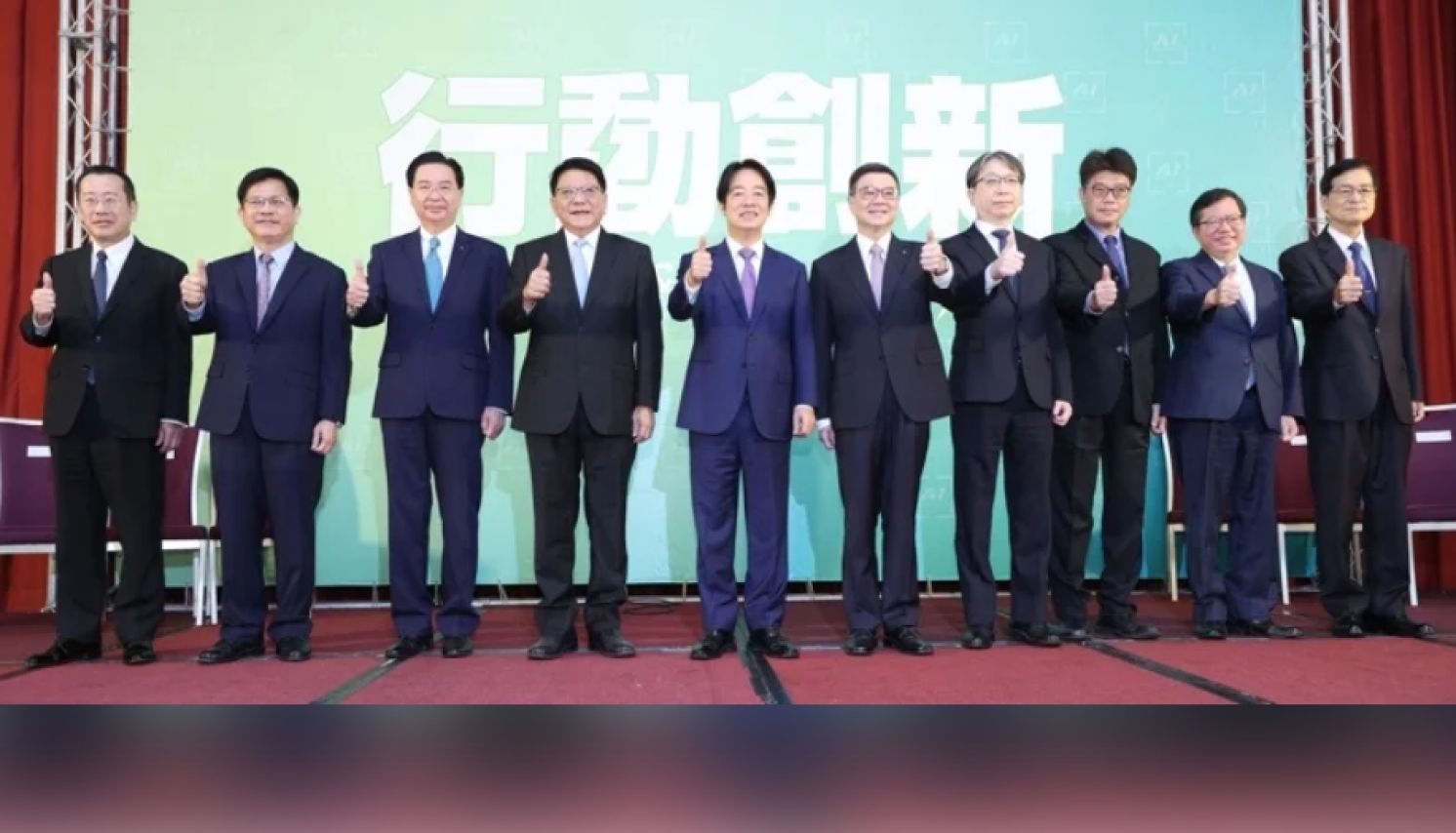
National Security Team Lost Facing U.S. Election
China Times Editorial, November 5, 2024
The American presidential election will inevitably impact U.S.-Taiwan relations and the security situation in the Taiwan Strait. In the face of potential changes, there is no sign of proactive planning from the Democratic Progressive Party (DPP) administration. Instead, senior officials making inconsistent and erratic statements are widely reported. The administration of President Lai Ching-te is shifting the blame to China's cognitive warfare to cover up its own incompetence and anxiety.
An anonymous national security official have been working behind the scenes, using specific media outlets to accuse Communist China of conducting cognitive warfare against Taiwan. This has become a consistent tactic of the DPP administration to shape public opinion and divert attention. Recently, the said personnel revealed that Communist China’s cognitive warfare against Taiwan continues to focus on two main themes: the “U.S.-skeptic” and “Lai-skeptic” theories. These narratives can be divided into five themes: Taiwan betting, lack of control, abandoned chess piece, lack of importance, and unfavorable post-election outcomes from the United States and Japan. Communist China’s goal is to undermine public confidence in the Lai administration’s competence to respond to external changes.
The "U.S.-skeptic” and “Lai-skeptic” theories are not unfounded. During his campaign, Republican presidential candidate Donald Trump repeatedly stated that Taiwan should pay for American protection, should increase its defense budget to 10 percent of gross domestic product (GDP) and accused Taiwan of stealing the American semiconductor industry. American scholars and experts unanimously believe that if Trump returns to the White House, he might use Taiwan as a bargaining chip in "transactional" diplomacy with Communist China. The New York Times reported that Mr. Trump is very reserved about deploying troops to protect Taiwan, a stance welcomed by Beijing.
The Lai administration avoids responding to Trump's wild remarks and does not challenge the New York Times' "U.S.-skeptic” narrative. Instead, it warns the Taiwanese people that these are part of Communist China’s cognitive warfare to create doubts about the United States. Beyond misleading the public, the Lai administration also aims to create a chilling effect, suppressing critical and skeptical voices.
During his presidential campaign, Mr. Lai publicly stated, "When the President of Taiwan can enter the White House, the political goal will have been achieved." This forced American officials to ask Taiwan for explanation. In his inauguration and National Day speeches, Lai promoted the "Two State” theory, asserting that the Republic of China and the People's Republic of China are not subordinate to each other. This is the origin of the "Lai-skeptic” narrative, which has led Biden administration officials to emphasize that the U.S. “One China” policy remains unchanged and that they do not support Taiwan independence. After the American presidential election, in addition to the new president's stance and policies, whether Communist China continues to increase its military and economic pressure on Taiwan, and whether President pushes for the new “Two State” theory and Taiwan independence, will also be determining factors for the future stability and security of the Taiwan Strait. The lingering shadow of the "Lai-skeptic” narrative persists, which is for sure unsurprising.
As for the so-called "Taiwan betting," "abandoned chess piece," "lack of importance," and "unfavorable post-election outcomes from the United States and Japan," these are all based on facts and reasonable judgments. American mainstream think tanks and publications, including the Brookings Institution, Foreign Policy, and Foreign Affairs, predict that the future development of U.S.-China-Taiwan relations will not deviate from these possibilities. This fully reflects the ostrich mentality of the Lai administration's national security team, which only releases good news rather than bad news. Those who don’t take sides would be labeled as engaging in China’s cognitive warfare against Taiwan.
This further highlights the Lai administration's diplomatic team's inability to fully understand and manage the situation. Recently, Deputy of Minister Affairs Wu Chih-chung stated in a media interview that Taiwan is "very, very worried" about this election, which was immediately criticized as highly inappropriate by international politics commentator Ross Feingold.
The Ministry of Foreign Affairs (MOFA) explained that the foreign media did not accurately grasp the content of Wu’s remarks, emphasizing that his mention of "concern" and "worry" was to express concern, and there was nothing inappropriate about it.
In fact, the most inappropriate part of Deputy Minister Wu's remarks was: "If Trump abandons Taiwan, then I wonder how he plans to make America great again, as he will lose American support and credibility in the Asia-Pacific region." Whether Trump will be elected is still uncertain, let alone whether he will abandon Taiwan. A senior diplomat openly discussing such a sensitive "double hypothetical" issue is akin to digging a pit for himself to fall into, and it seriously interferes with the American presidential election. Meanwhile, MOFA is still making a big deal out of the word "concern" and "worry," completely unaware of the seriousness of the issue.
The outcome of the American presidential election will inevitably influence American foreign policy. Countries around the world are proactively prepared to cope with the new American administration next year. However, the DPP administration, which is entirely dependent on the United States, can do nothing but wait and see. In the interim, officials have repeatedly made inappropriate and inopportune remarks fraught with anxiety and insecurity causing the public to lose confidence in Lai administration. This stems from the DPP's diplomatic incompetence, failing to promptly address the "U.S.-skeptic” and “Lai-skeptic” narratives, which are really unrelated to the so-called "Chinese cognitive warfare.”
Photo from: United Daily News
Article from: https://www.chinatimes.com/opinion/20241105005117-262101?chdtv